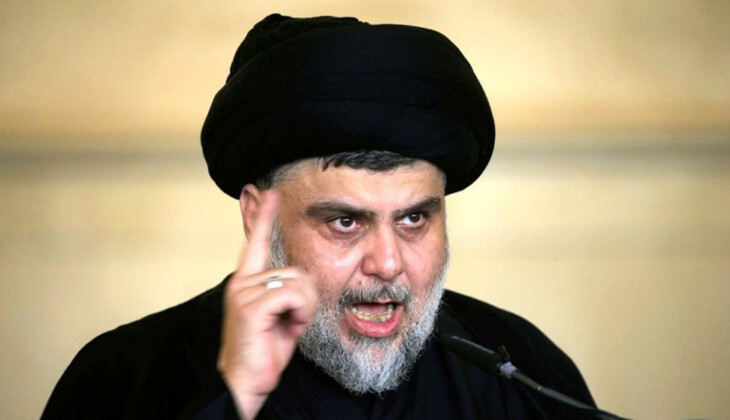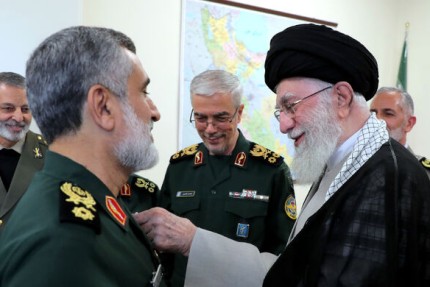raqi parliament speaker accepts Sadr bloc’s resignation

Iraq’s Parliament Speaker Mohammed al-Halbousi has accepted mass resignation of lawmakers faithful to influential Shia cleric Muqtada al-Sadr.
“We have reluctantly accepted the requests of our brothers and sisters, representatives of the Sadr bloc, to resign,” al-Halbousi tweeted on Sunday.
The country has been without a government since parliamentary elections in October. Sadrists exceeded their fellow aspirants by winning as many as 73 seats in the contest.
The seats are, however, not enough to give them a mandate to break the impasse. Sadr, himself, has said he would not team up with any other bloc to form an alliance that could throw its support behind a new prime minister.
Lawmakers loyal to Iraq’s Sadr resign en masse to break political deadlock
Members of Iraq’s Sadr movement have resigned from parliament as the country fails to form a new government nearly eight months after last October’s parliamentary elections.
The cleric has called the en bloc resignation “a sacrifice made towards emancipation of the [Iraqi] nation from an ambiguous fate,” referring to the impasse. “If the survival of the Sadrist bloc is an obstacle to the formation of the government, then all representatives of the bloc are ready to resign from parliament,” Sadr had said on Thursday in a televised statement.
He has also described the deadlock in the formation of a new government in the country as “fake,” without elaborating.
Sadr has also ordered postponement of the operations of all the institutions that are supervised by his movement, with a few exceptions.
Comment
- Ali Mattar’s Significant Explanations on Hochstein’s Trip and US and Israel’s Conditions
- Would the Hamas Movement Come to an End with the Martyrdom of Yahaya Sinwar
- The Psychological Warfare of the Zionist Regime and the Need for a Credible Narration
- October 7th and a Return to the Zero Point/Why Israel is Thrown Back 70 Years
- The “Honest Promise 2” operation and its Diplomatic َAppendages
- Ali Mattar’s Significant Explanations on Hochstein’s Trip and US and Israel’s Conditions
- Would the Hamas Movement Come to an End with the Martyrdom of Yahaya Sinwar
- The Psychological Warfare of the Zionist Regime and the Need for a Credible Narration
- October 7th and a Return to the Zero Point/Why Israel is Thrown Back 70 Years
- Leader awards Fath badge to Gen. Hajizadeh for missile op
- The “Honest Promise 2” operation and its Diplomatic َAppendages
- Gains of Pezeshkian’s Visit to Qatar /Success of the Public Diplomacy
- 5 key points on the outcome of Iran’s attack against the Zionist regime
- Field Facts of the War on Lebanon/ The realities as They Are
- Some Tips on the Escalation of Clashes Between Lebanon and the Zionist Regime
- The Opportunities and Challenges Facing Pezeshkian’s Trip to New York
- Sana’a Possesses Modern Military Techniques and Technologies/ Details of Yemeni Advanced Missiles
- The Aim of Attacking Lebanon was a Targeted Assassination of the Civilians Not the Hizballah Forces
- Ali Mattar’s Significant Explanations on Hochstein’s Trip and US and Israel’s Conditions
- Would the Hamas Movement Come to an End with the Martyrdom of Yahaya Sinwar
- The Psychological Warfare of the Zionist Regime and the Need for a Credible Narration
- October 7th and a Return to the Zero Point/Why Israel is Thrown Back 70 Years
- Leader awards Fath badge to Gen. Hajizadeh for missile op
- The “Honest Promise 2” operation and its Diplomatic َAppendages
- Gains of Pezeshkian’s Visit to Qatar /Success of the Public Diplomacy
- 5 key points on the outcome of Iran’s attack against the Zionist regime
- Field Facts of the War on Lebanon/ The realities as They Are
- Some Tips on the Escalation of Clashes Between Lebanon and the Zionist Regime




